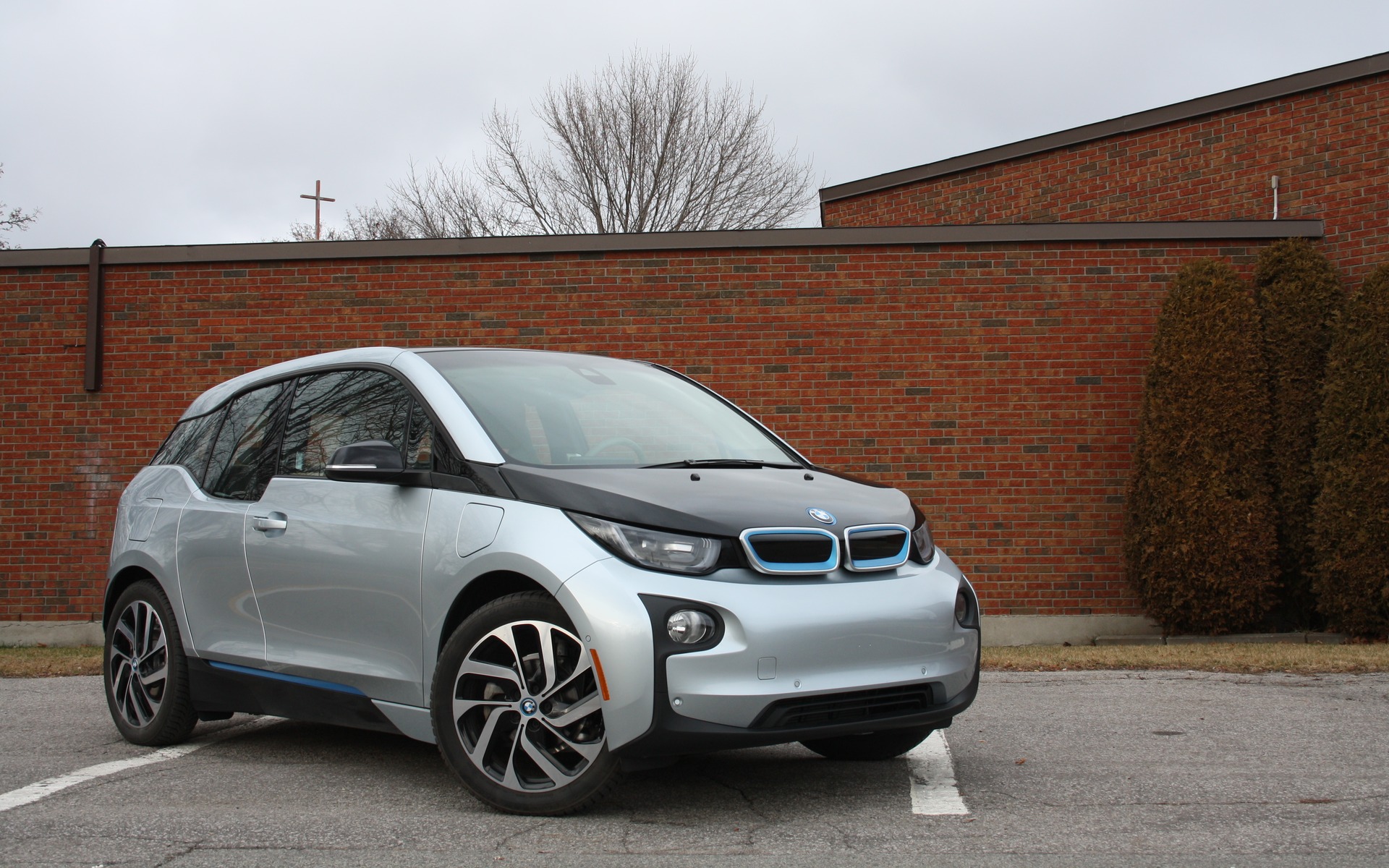2015 BMW i3: Today’s Shape Of Tomorrow


Someday, electric cars will be offered in all shapes and sizes, and people who drive them likely won’t be trying to make a statement. However, if we’re behind the wheel an EV today, we’re probably sticking out like a sore thumb. We’ll definitely get noticed in the 2015 BMW i3, a car that presents a glimpse of future urban motoring, but adapted to current needs.
Those needs include the feeling that we’re not limited to a certain driving range, and that a car should take us wherever we want to go. And the i3 offers that, as long as you tick the Range Extender option box.
Read also
Half car, half motorcycle
The i3 is equipped with an electric engine that dishes out 125 kW, or 170 horsepower and 184 lb-ft of torque, a rear-wheel drivetrain and a single-speed automatic transmission. The car quickly bursts up to speed in city traffic, and can tackle a highway merge without breaking a sweat. BMW estimates range at between 130 and 160 km, which can vary according to driving habits and the speed we’re travelling at. The i3 requires up to six hours to be fully recharged with a 240V outlet.
The Range Extender is basically an on-board generator that produces energy, sent to the lithium-ion battery pack to keep on feeding the electric motor. The generator in question is a 647-cc twin-cylinder engine – borrowed from the BMW Motorrad division – that develops 38 hp and is wedged onto the rear axle right beside the electric motor. When the battery pack is drained down to its minimum charge, the engine starts up, and you’ll definitely hear it revving up as it scrambles to generate energy. It basically provides additional range when the battery runs down and you haven’t yet reached your destination.
However, the motorcycle engine also includes a tiny 7.3-litre fuel tank, and range is actually extended by only about 100 km (fun fact: the BMW C650GT scooter’s tank is twice as big). Driving with the Range Extender engine running, we observed a fuel consumption average of about 7.0 L/100 km, or roughly the economy of a typical subcompact. So the gasoline twin-piston lump is only there “just in case,” but that also brings the compromise of extra weight (270 lbs.) and extra maintenance costs in the long run – and a $4,000 price hike over the 2015 BMW i3’s $45,300 MSRP.
Who needs the Range Extender engine, anyway? In theory, no one does. You see, if our daily commute stretches more than 100 km without an access to a charging station away from home, an i3 might not be the best solution. And while I thought practically nobody chose to add the gasoline engine to their i3, BMW Canada says about 77% buy it. Range anxiety is alive and well.
In my case, driving to work involves a lot of highway mileage, and the faster you drive, the faster an EV’s range plunges. The best I managed during our test of the 2015 BMW i3 was an electric-only range of 95 km. Limiting our trip to city speeds and surroundings is obviously the best option for maximizing range.
Fun to drive
The i3 offers a driving experience that’s unlike conventional cars, but also different from other EV’s we’ve tested. Energy regeneration when we lift the throttle is pretty aggressive, which means the car slows down instead of coasting. After some practice and anticipation, we can drive around without having to touch the brakes. The car’s lively steering is on par with the brand’s philosophy of providing a dynamic driving experience.
By design, the i3 looks like a small car, but it actually has the interior space of a compact, thanks to its high roofline. Four adults will ride in relative comfort, and accessing the rear-seat area isn’t all that challenging. However, the thinly padded seats aren’t the best for long drives. The rear seatback can be folded down to provide up to 1,100 litres of cargo space, while the trunk’s standard 260-litre capacity will handle the weekly trip to the grocery store.
The minimalist interior design offers three different decors, or what the brand calls “worlds.” The most interesting is the Lounge World, mixing gray wool seat fabric with brown leather inserts. Together, the wood trim, cotton fibre interior panelling and basic – yet high-tech – instrumentation look elemental and elegant.
Paying the price
Our i3 tester was also equipped with the Technology Package that rounds up a Harman Kardon sound system, BMW Online, adaptive cruise control and pre-collision warning. Add the Range Extender package, the Lounge interior and a quick charge port, and we’re looking at a $56K EV.
Is it worth it? Personally, for all the experience of a premium EV without busting the budget, I’d go for the optional quick charge port and that’s it. The extra ten grand over the price of a Nissan LEAF gives us better performance and handling, more style, but a shorter range. The i3 is an arguably more enticing choice than the slightly less expensive Ford Focus Electric, which looks like, well, a $20K Focus. The i3’s MSRP also includes access to conventional BMW models a few times a year when we’re planning a long-distance road trip.
Simply put, the BMW i3 is a fashion and eco-friendly statement all in one. If we can live with the average range, it’s pretty much the most fun we can get out of en EV that doesn’t have a Tesla badge on it.
- Check out our BMW Zone
- Search for a pre-owned BMW i3








